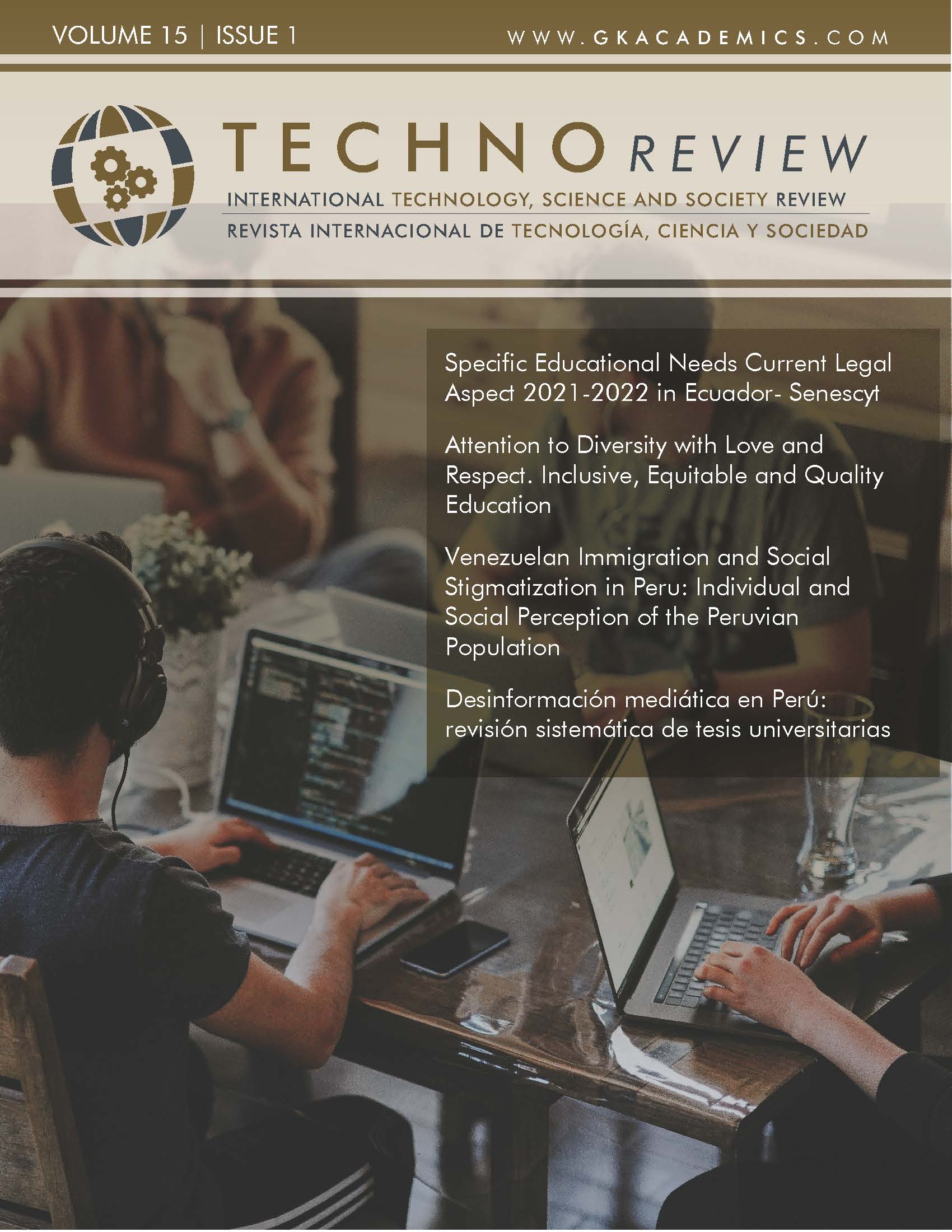Specific Educational Needs Current Legal Aspect 2021-2022 in Ecuador- Senescyt
DOI:
https://doi.org/10.37467/revtechno.v15.5029Keywords:
Inclusion, Special educational needs-SEN, Higher education, Effectiveness, Legal frameworkAbstract
In Ecuador, education has been considered a fundamental human right and the State has the responsibility to guarantee its universal and equitable access. In addition, the Organic Law of Intercultural Education (LOEI) establishes the legal framework for education in the country. In this sense, governments have a responsibility to provide inclusive and equitable education for all, regardless of their individual differences. In Ecuador, the SENESCYT (Secretary of Higher Education, Science, Technology and Innovation).
References
Benitez, R. (2021, July 4). The new narrative in the digital age. Origin, evolution and contributions to the new media. [Video]. GKA VISUAL 2021 - 7th International Conference on Visual Culture. https://events.gkacademics.com/videos/85
Emmett, Y. (2013). Living theory of leadership development for e-learning. [Doctoral thesis] Dublin City University. DCU Online Research Access Services. http://doras.dcu.ie/17723/
Finley, R. (2014, March 29). Prospects still slim for major pick-up of global economy. The Irish Examiner, p. 27.
Galison, P. & Hevly, B. (Eds.). (1992). Big science: the growth of large-scale research. Stanford University Press.
Kuhn, T. (1957). The copernican revolution: planetary astronomy in the development of western thought. Harvard University Press.
Kuhn, T. (1962). The structure of scientific revolutions. University of Chicago Press.
Lupton, D. (2015, December 10). Public understanding of personal digital data. This Sociological Life. https://bit.ly/3urZlLR
Mumford, L. (1934). Technics and civilization. Harcourt, Brace & Company, Inc.
Nolan, C. (Director). (2014). Interstellar. [Film]. Paramount Pictures.
Ovide, S. (2020, November 18). Government surveillance by data. The New York Times. https://www.nytimes.com/2020/11/18/technology/government-surveillance-by-data.html
Pinch, T. & Bijker, W. (1984). The social construction of facts and artefacts: or how the sociology of science and the sociology of technology might benefit each other. Social Studies of Science, 14(3), 399-441. https://doi.org/10.1177/030631284014003004
Shapin, S. & Schaffer, S. (1985). Leviathan and the air-pump: Hobbes, Boyle, and the experimental life. Princeton University Press.
Verschraegen, G., Vandermoere, F., Braeckmans, L. & Segaert, B. (2017). Imagined futures in science, technology and society. Routledge.
Von Hippel, E. (2006). Democratizing innovation. The MIT Press. https://doi.org/10.7551/mitpress/2333.001.0001

